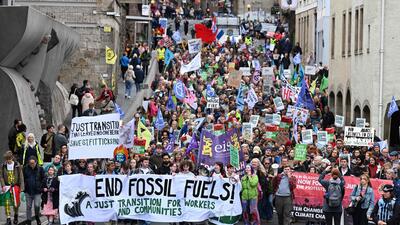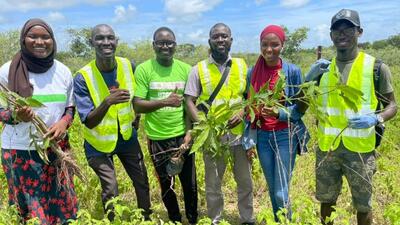
Small is powerful – Business in the green economy transition
Small businesses have huge potential to supercharge the green economy transition, but are at risk of being left on the side-lines
The transition to a greener economy is picking up speed. Countries around the world are seeing the opportunities of an economic model that is built on renewable resources, sustainable growth, and deeper alignment with nature and human wellbeing. There is clamour from citizens and scientists alike to act and address the climate crisis and other pressing environmental challenges, even as economies continue to develop.
UN Secretary General António Guterres has called for a ‘renewable energy revolution’, and to “[shift fossil fuel] subsidies to vulnerable people that want to engage in the green economy.” At the Green Economy Coalition (GEC), we agree wholeheartedly – and see micro, small and medium-sized enterprises (MSMEs) as powerful actors in this new economic model.
As we show in our new report with Finance Watch, small businesses account for up to 90% of jobs in many countries (especially emerging economies), and contribute between one-quarter and over half of all economic activity.
Yet small businesses are inadvertently cut out from participating in the green economy – by a lack of access to finance, a lack of recognition of the social and environmental value they bring, and from recourse to exemptions from environmental regulations, leading to a race to the bottom and leaving local green enterprises struggling to compete.

The Green Economy Coalition has brought together partnerships and voices from across the globe to speak for a role for local green enterprises.
The GEC has been working since 2009 to promote new visions of a green economy at a global and national level. We have brought together grassroots actors and the smallest green businesses (we call them ‘local green enterprises’) to shape new approaches to green investment that can ensure funds and opportunities get to these actors.
The 2020 Delhi Declaration typifies the approach we take, and the messages that are starting to be heard by policymakers who see the potential of small and green to make the green transition a reality. But to succeed we need partnerships and partners like the International Trade Centre to ensure the right messages are heard.

Governments must build trust, close funding gaps, and create enabling policies to harness the full potential of small, green businesses.
In ‘Financing Local Green Enterprises: Closing the funding gap for sustainable MSMEs in developing countries’ (2022), Finance Watch and the GEC are arguing for three sets of recommendations to re-centre green MSMEs (or those who are ‘greening’) in the debate.
Governments should consider ‘master plans’ that together address trust, information and capacity, and the finance ecosystem.
- Trust – Governments and financial institutions should ensure small businesses can more easily put up capital to access finance, and work to improve credit guarantee schemes to incentivize green activities.
- Information and capacity - Governments should enhance the capacities of green businesses by exploring the legal status for their business forms, provide supportive credit conditions, and creating one-stop-shop agencies for small businesses.
- Finance ecosystem – Governments should supercharge the finance ecosystem for green businesses by mandating development finance institutions and banks to step into the space, rethinking micro-credit loans, and shift how they account for public spending on small business support.
















